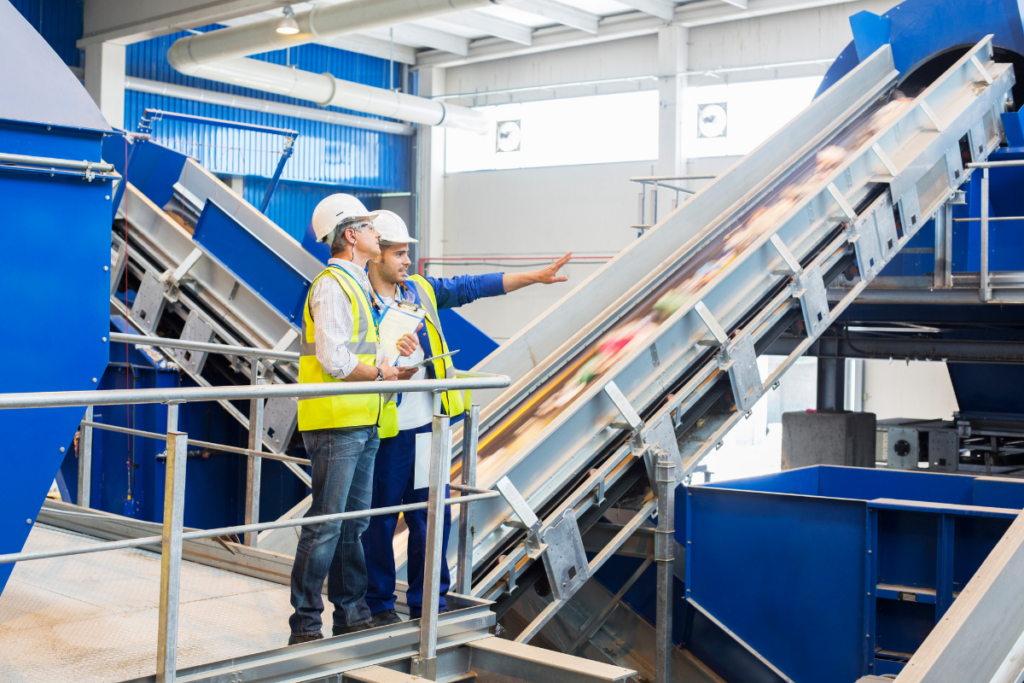Invest in Holland 2024: Investments Drive Key Transitions for Shared Value in the Netherlands
Companies from around the world expanded in the Netherlands, working with Dutch partners to accelerate innovation, sustainability, digitalization and more
In 2024, the Netherlands again shined as a global hub for innovation, collaboration and sustainability. On display was the country’s distinct approach to foreign investment, focused on creating shared value. The past year saw a diverse field of international companies join forces with Dutch partners to tackle some of the world’s most pressing challenges. Together, they drove key transitions in energy, tech, agrifood, chemicals, high-tech systems, life sciences & health and more. These partnerships simultaneously benefit the companies involved and contribute to a healthier, more sustainable, more resilient society within the Netherlands and beyond.
What explains the Netherlands’ ability to foster collaborative innovation? The Dutch ‘triple helix’ is a major factor, enabling close synergy between business, academia and government. To that you can add a competitive business climate, world-class infrastructure, a highly educated talent pool and dynamic industry clusters anchored by science and innovation parks. Taking these advantages into consideration, it’s no surprise the Netherlands ranks among the top 5 most innovative countries in Europe.
As the world continues to navigate multiple transitions in a complex landscape, the Netherlands stands out as a place where companies can make a positive impact. From cutting-edge AI technologies to circular economy solutions, the stories of 2024 showcase how the Dutch innovation ecosystem is driving collective progress – and why so many businesses continue to Invest in Holland.
Powering the global energy transition
The Netherlands is at the forefront of the latest developments in renewable energy and green technologies, guided by its goal of achieving net-zero emissions by 2050. That commitment means the country welcomes smart investment projects that can reduce emissions and increase resource efficiency. One example is Turkish energy company EnerjiSA, which expanded its European presence in Amsterdam. A specialist in trading electricity, natural gas and environmental commodities, EnerjiSA will leverage its new offices to enhance its business growth while contributing to the competitiveness and stability of the Dutch energy ecosystem.
Meanwhile, South Korea’s SK tes inaugurated a large-scale battery recycling facility in Rotterdam, where it looks to meet rising demand for sustainable battery solutions in Europe’s growing electric vehicle market. The company is now a member of the Port of Rotterdam’s industrial ecosystem, where it is deeply aligned with the port’s focus on recycling raw materials that are vital for the energy transition.
Digitalization and AI innovation gather momentum
As the race to advance artificial intelligence surges worldwide, the Netherlands’ triple helix environment positions the country as a magnet for AI innovation and broader digitalization initiatives. British startup Greyparrot’s partnership with Dutch recycling company Bollegraaf exemplifies this collaborative approach: by deploying AI-powered waste analytics, the two firms look to double the rate of plastic recycling efficiency and advance circularity through digitalization. Similarly, Canada-based MoCA Cognition established an innovation hub at High Tech Campus Eindhoven, where it will work with local companies and universities to develop its AI-driven diagnostics for neurodegenerative diseases in alignment with the Netherlands’ national health goals.
India’s Shipsy further highlights these trends: at its new EU headquarters in Rotterdam, the company aims to advance digital transitions and sustainability in the logistics sector with its AI platform. For U.S.-based MotherDuck, Amsterdam offered the perfect site for its European headquarters – a place to strengthen its ties with Dutch knowledge institutions while bringing innovative data solutions to the Netherlands’ tech ecosystem.
Bringing the circular economy to life
Along with clean energy, the Netherlands’ commitment to achieving a circular economy by 2050 attracts pioneers in sustainable innovation. Previously mentioned SK tes and Greyparrot figure into this circularity story, together with several more from 2024. U.K.-based CIRCTEC began constructing Europe’s largest end-of-life tire pyrolysis recycling facility in Delfzijl, supported by private investment and €22.5 million from the Dutch government. CIRCTEC’s technology offers a scalable solution to tire waste problems in the Netherlands by embracing circularity and reducing greenhouse emissions.
Also hailing from Britain, Itero is scaling up its Dutch presence with a new demonstration plant at Brightlands Chemelot Campus, where it can leverage Dutch chemical expertise to transform hard-to-recycle plastics into new materials. In addition, South Africa’s Sasol and Denmark’s Topsoe launched a Dutch joint venture, Zaffra, that will produce sustainable aviation fuel for Amsterdam Airport Schiphol using non-fossil feedstock – accelerating the aviation sector’s decarbonization process. Japan-based Mitsubishi Materials also chose Amsterdam for its European headquarters, where it can meet global demand for recycled e-waste materials and contribute to the circular economy.
Creating a healthier, more sustainable world
From water security to cancer treatment, international firms are collaborating with the Dutch to address societal challenges on the global stage. Dubai-based Desalytics joined the innovative community at WaterCampus Leeuwarden, known as Europe’s water tech capital, to develop sustainable, affordable water solutions for communities in sub-Saharan Africa.
At Pivot Park in Oss, Acerta Pharma has grown from humble beginnings to become a driving force in hematology research and clinical studies in Europe. The company, a member of the AstraZeneca Group, is well-connected with academic and medical centers across the Netherlands and aims to increase its partnerships in the Dutch life sciences & health ecosystem to develop better treatments for blood cancer patients.
Giving industries a high-tech upgrade
As companies look to drive technological transitions in their respective fields, the Netherlands’ far-ranging expertise in high-tech systems and deep industry networks offer a distinct advantage. Investments in the Dutch agrifood ecosystem showcased this trend in 2024, with multiple companies bringing high-tech innovations to enhance agriculture and food production. U.S.-based Infinite Acres’ new R&D center in The Hague unites global players like Siemens and Signify, together with Dutch research talent, to elevate vertical farming. Singapore’s Umami Bioworks, meanwhile, is tapping into Wageningen University’s agrifood ecosystem to provide a technology-driven solution to overfishing and other issues in the seafood industry.
Along with cross-sectoral upgrades, the Netherlands is an epicenter for the high-tech industry itself, fostering breakthroughs in fields like aerospace and mobility. U.S.-based Axient set up a presence in the Dutch aerospace community, building on partnerships with TNO and FSO Instruments to bring advanced solutions to civilian and defense customers in Europe. In a similar story, Leo Drive, headquartered in Türkiye, joined Helmond Automotive Campus’s thriving knowledge community to facilitate the integration of autonomous technology in the European automotive industry.
Solutions for a secure, resilient future
One major consequence of the rapid pace of innovation and global change is the demand for robust security solutions, from the world of business to civic society. On the cybersecurity front, Spain’s S2 Grupo expanded to Rotterdam to strengthen its ties with Security Delta (HSD) and international NGOs. With these partners, S2 Grupo is focused on fortifying critical infrastructure for public agencies and sectors like water, energy, logistics, transport and healthcare.
In the finance industry, U.K. firms ClearBank and CAB Payments both chose the Netherlands’ booming fintech ecosystem for their European headquarters, with each looking to deliver secure services to clients in a fast-evolving world of digital transactions. And in the nonprofit sector, International Initiatives International launched a European presence in The Hague, the city of peace and justice, to bring together hundreds of global partners in a common mission of safeguarding international security, human rights and democratic institutions.
Across industries, forward-thinking companies are converging in the Netherlands as a place to find the right partners that can help them accelerate technological transitions and implement new ideas. These collaborations ensure that technological progress and sustainability efforts work in the interest of everyone, leading to future-proof solutions that benefit the Netherlands and global society.
Want to learn more about opportunities for business growth and collaboration in the Netherlands? Contact our team to discover how we can create the future together.
10 February 2025


